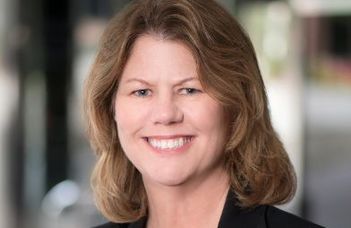Interview with our new honorary doctor Kristie Long Foley
How does a counseling psychologist become a public health professional and a leading figure in implementation science?
As a counseling psychologist, I worked as a director of an Alzheimer’s special care unit. I managed all activities of the 44-bed long-term care facility and offered counseling support for caregivers. I observed organizational policies and state and federal laws that were, in my opinion, inconsistent with maximizing quality of life and autonomy at the end of life. Additionally, there were evidence-based strategies to promote mental and physical health that were underutilized or inconsistently applied. The staff of the unit were poorly paid and not utilized to their fullest potential, which I believe contributed to performance problems on the job. I wanted to study how we implement evidence-based practices in healthcare and the organizational and systemic contributors to implementation success. Thus, I decided to return to school to pursue my PhD in public health with a focus on how organizations and policies affect population health and health care. As an Implementation Scientist, I study how to translate research into practice and policy in real world settings and have been been fortunate to foster translation with important public health and health system benefits.
To what extent was being a woman a hindrance to your academic success? What changes have you experienced in this area?
In my first major leadership position at Wake Forest, I was the only woman leading a scientific program for our cancer center. My male colleagues were incredibly supportive and always showed the utmost respect for my intellectual and strategic contributions. I have been fortunate to work at Wake Forest, a medical school that places a very high value on women in academia and promotes their leadership. In 2021, I was awarded the Hedwig van Ameringen Executive Leadership in Academic Medicine® (ELAM®) fellowship. ELAM is a year-long part-time fellowship for women faculty in schools of medicine, dentistry, public health, and pharmacy dedicated to developing the professional and personal skills required to lead in today's complex health care environment. This highly selective fellowship invites approximately 60 women to participate each year. I am grateful and privileged to work in an organization that values and promotes women in academia.
What do you consider to be the most important achievement of your work to date?
The most important achievement of my work to date is the impact of our collective tobacco control capacity building research conducted in Hungary and in Romania. In addition to more than 80 unique publications, three books and over 100 international scientific presentations, our team has had transformative impact on public health and healthcare, and I have seen the contributions that continue to be made among the colleagues I have worked with for almost 20 years. The acceleration of scientific careers that has continued is incredibly gratifying.
What are the most important achievements and unanswered questions in implementation science today?
The most important achievement, in my opinion, is the expansive number of the implementation frameworks that can be used to guide the translation of evidence-based medicine and public health practice into real world settings. Additionally, there is a clear recognition of the value of studying implementation and dissemination as an essential corollary to innovation. There are two vexing questions that remain: (1) how do we measure the speed of translation – there is a considerable amount of work that highlights how long it takes to get evidence into practice, but little attention on how to accelerate the timeline; and (2) sustainability – as long as programs, interventions, etc. are implemented solely with external funding without fundamental changes internal, sustainability is elusive. We need to focus our efforts on designing for sustainability at the outset and engaging individuals early on in the co-creation process for sustainability.
What are you currently working on, and what are your plans for the future?
I currently serve as Principal Investigator of an Implementation Science Center for Cancer Control that is advancing the science of implementation in partnership with clinical colleagues. This Center also focuses on building capacity of early career investigators. I am also a Principal Investigator on a Patient-Centered Outcomes Research Institute grant to develop an infrastructure and set of processes that support implementation of evidence-based medicine in our health care system. I also lead a post-doctoral training program in cancer prevention and control and serve in a leadership or co-leadership role on several other key initiatives. In the future, I will continue to promote evidence-based cancer control strategies in health care settings and will focus on mentoring and training the next generation of implementation scholars.

